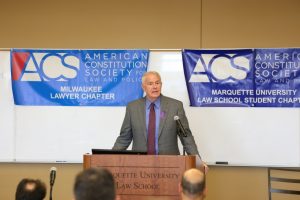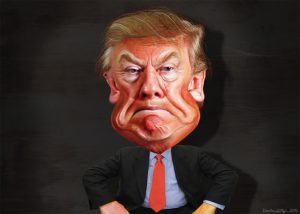Judicial Challenges to the Collateral Impact of Criminal Convictions: Is True Change in the Offing?
 My recent article, “Judicial Challenges to the Collateral Impact of Criminal Convictions: Is True Change in the Offing?,” examines judicial decisions that reflect an increasing dissatisfaction with harsh criminal penalties and severe collateral consequences for nonviolent offenders. Here is the abstract:
My recent article, “Judicial Challenges to the Collateral Impact of Criminal Convictions: Is True Change in the Offing?,” examines judicial decisions that reflect an increasing dissatisfaction with harsh criminal penalties and severe collateral consequences for nonviolent offenders. Here is the abstract:
Judicial opposition to disproportionate sentences and the long-term impact of criminal records is growing, at least in the Eastern District of New York. With the proliferation and harshness of collateral consequences and the hurdles in overcoming a criminal record, judges have asked for greater proportionality and improved chances for past offenders to get a fresh start. The combined impact of punitiveness and a criminal record is not only debilitating to the individual but also to their families and communities. A criminal case against a noncitizen who will be subject to deportation and a decade-long ban on reentry and three different requests for expungement will demonstrate how three federal judges struggled with the long-term effects of the current sentencing and collateral consequences regime. These cases exemplify both judicial creativity and judicial impotence, as the courts have to call upon the support of other actors within the executive and legislative branches for change, in these individual cases and systemically.
These judicial critics of the current approach argue within an emerging normative framework that is coming to dominate the societal discourse on punishment. Increasingly some offenders are deemed “worthy” of receiving our assistance in reintegration. They are generally nonviolent first offenders, those with an unblemished record save for the offense of conviction, those who have been gainfully employed or desperately want to work, and those who have cared for their children. They present no danger to the community, and their continued punishment may negatively impact them, their surroundings, and ultimately the country. On the other hand, those labeled violent or sex offenders or terrorists are being considered dangerous, unredeemable, and deserving of the harshness the criminal justice system has brought to bear on them. The specific categorization of offenses, the definitions of terms, and the categorization of offenders remain fluid, contingent, and subject to constant revision. Still, these judicial efforts expand on the incipient efforts at full reintegration of some of those with a criminal record. Whether their challenges will resonate with their colleagues and in other branches of government remains to be seen.
A full copy of the article can be downloaded at the New York University Law Review Online.
Nora Demleitner is the 2016 Boden Visiting Professor at Marquette University Law School.


